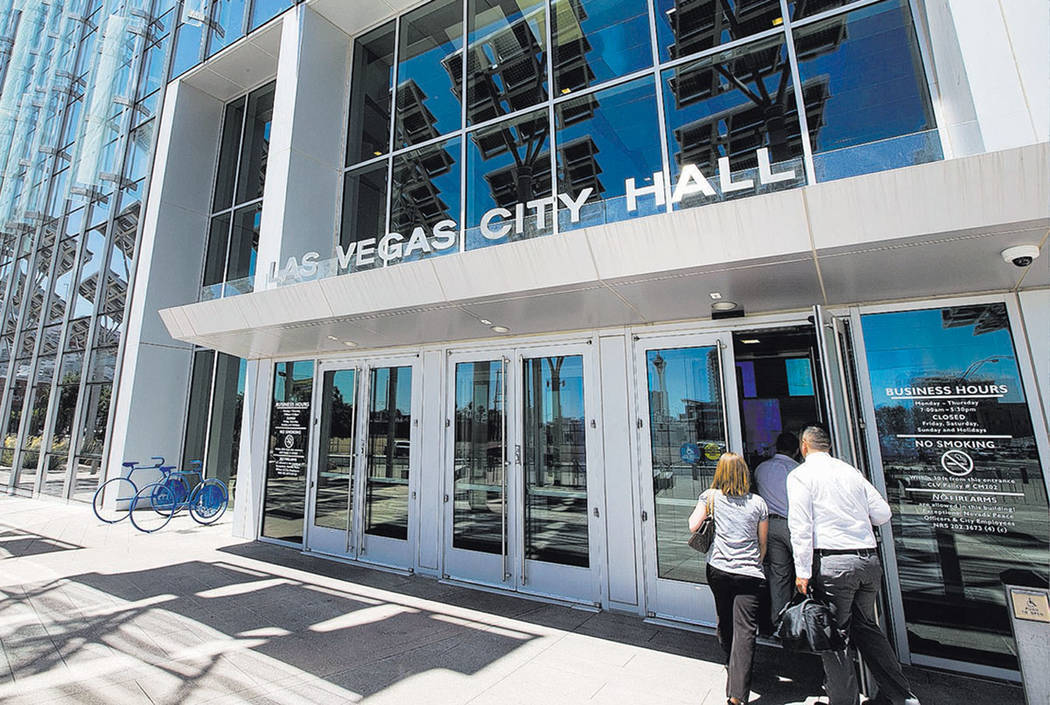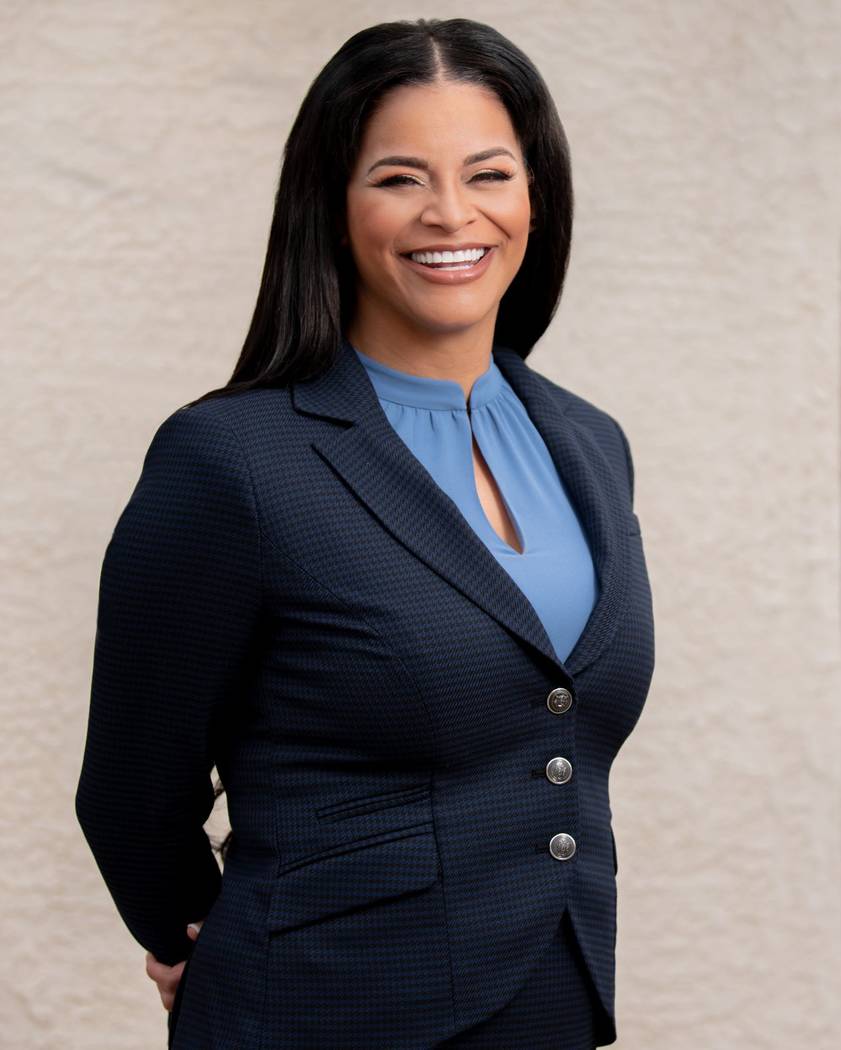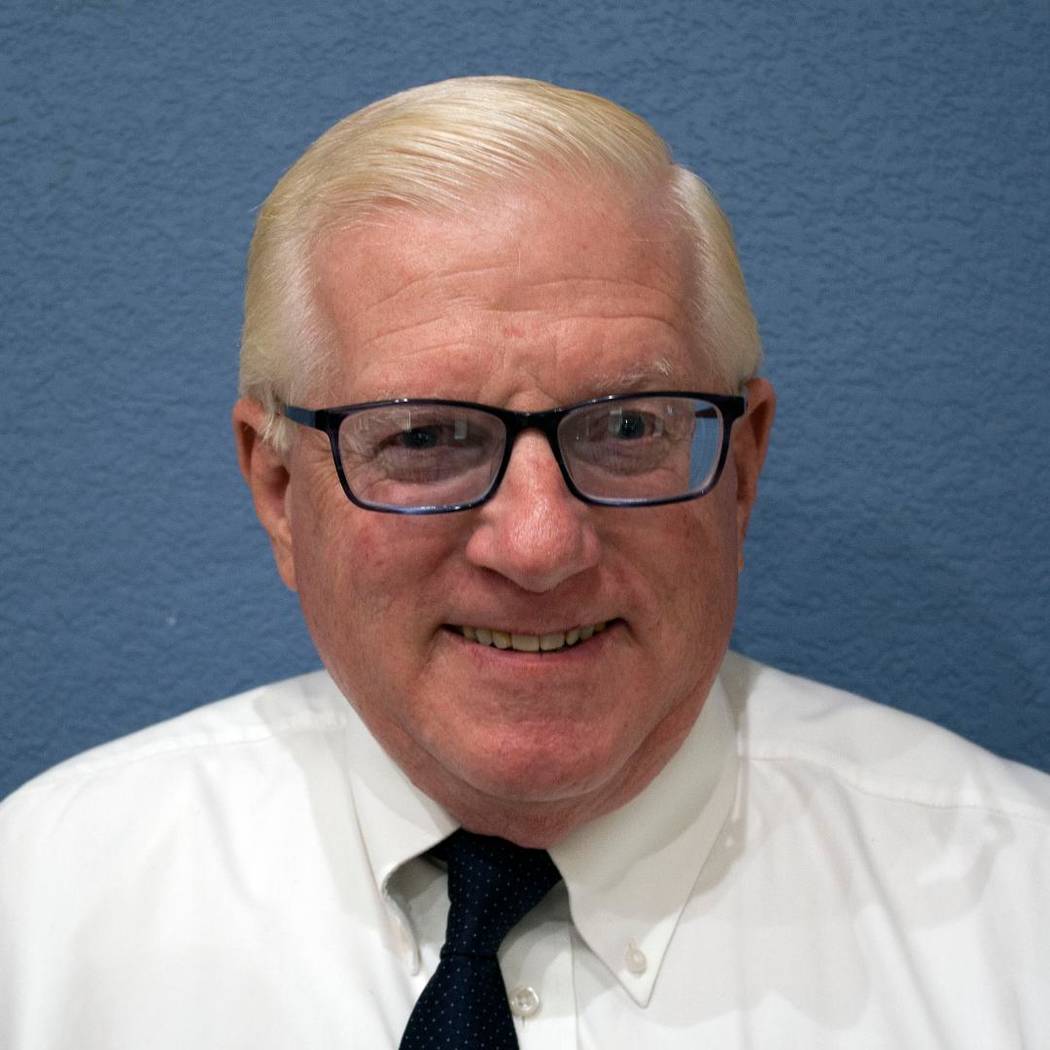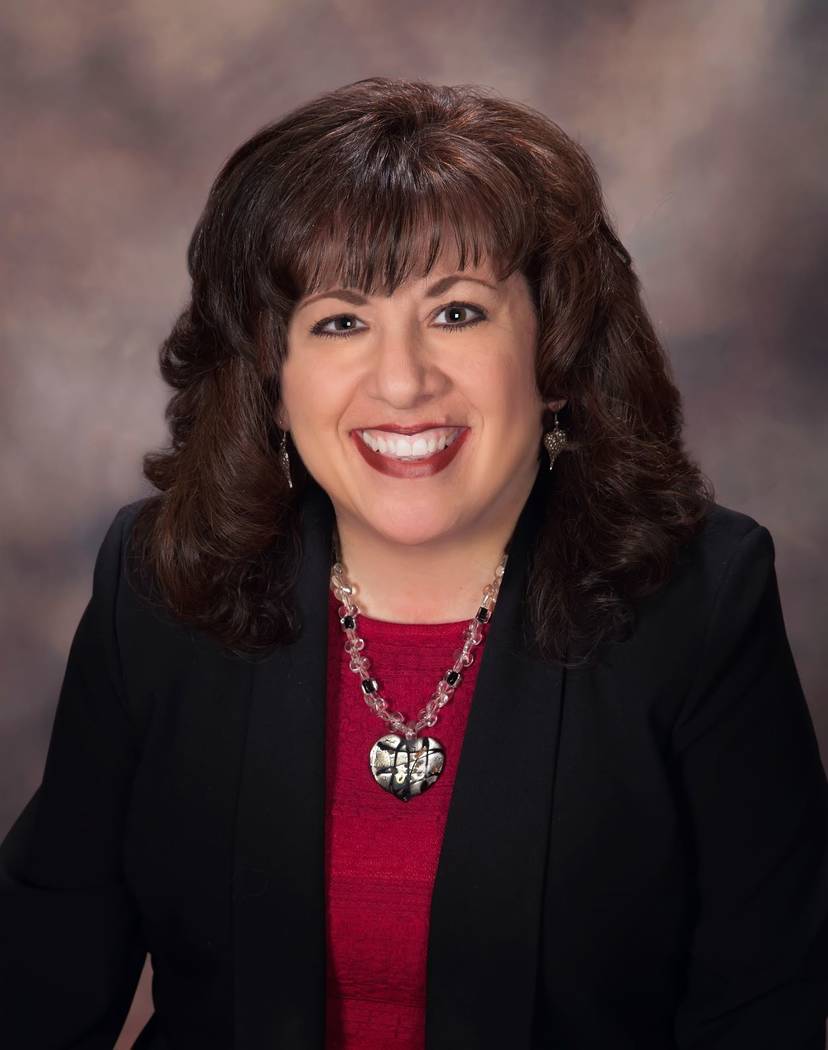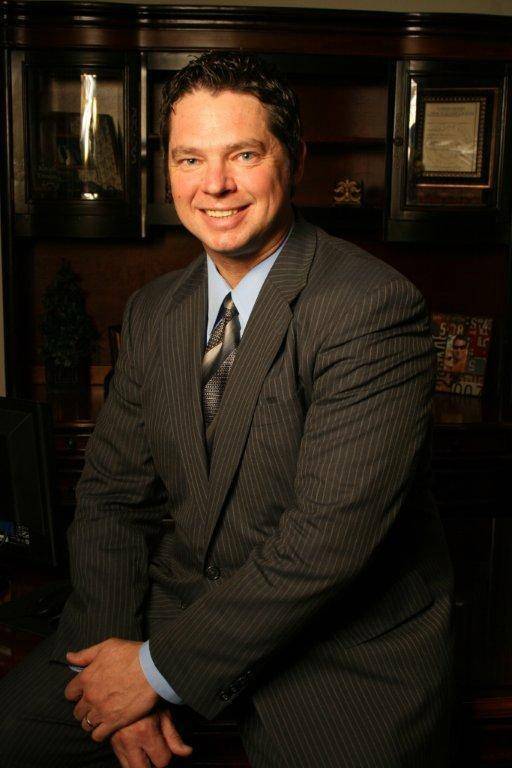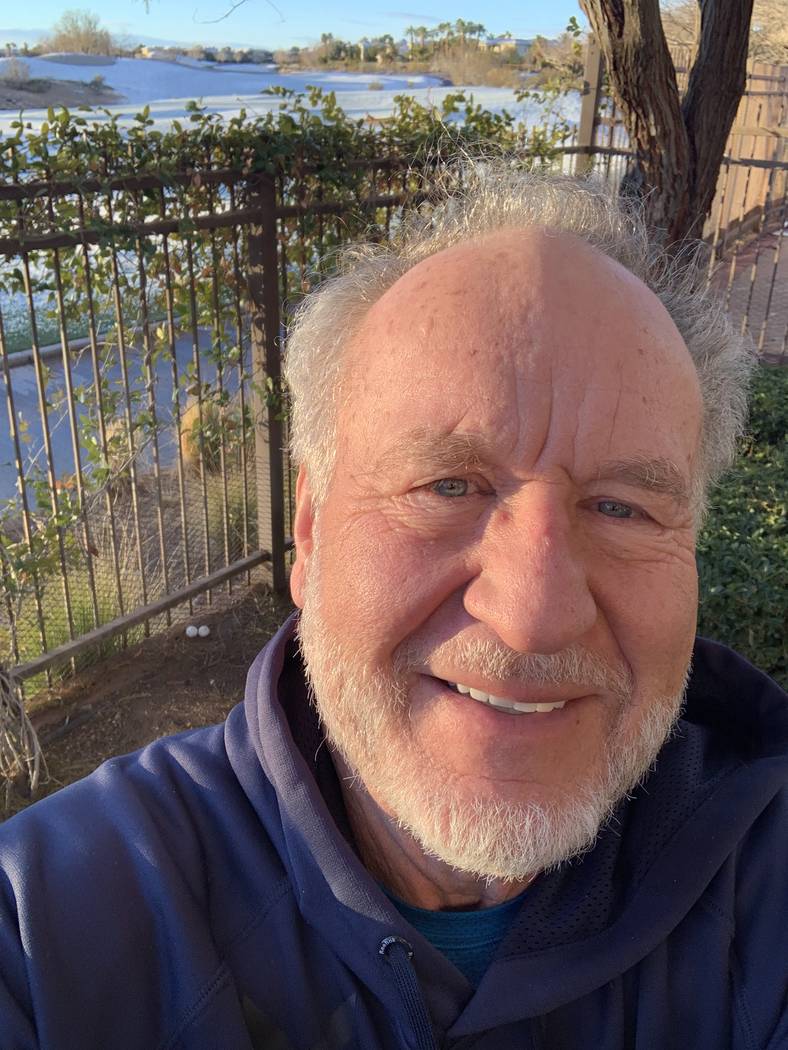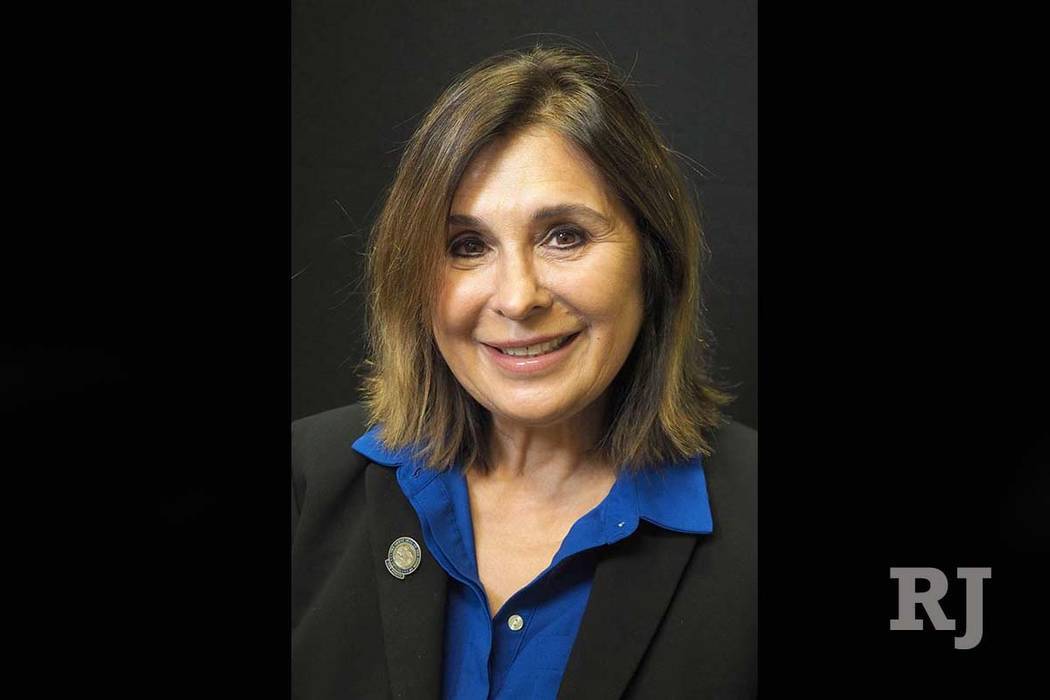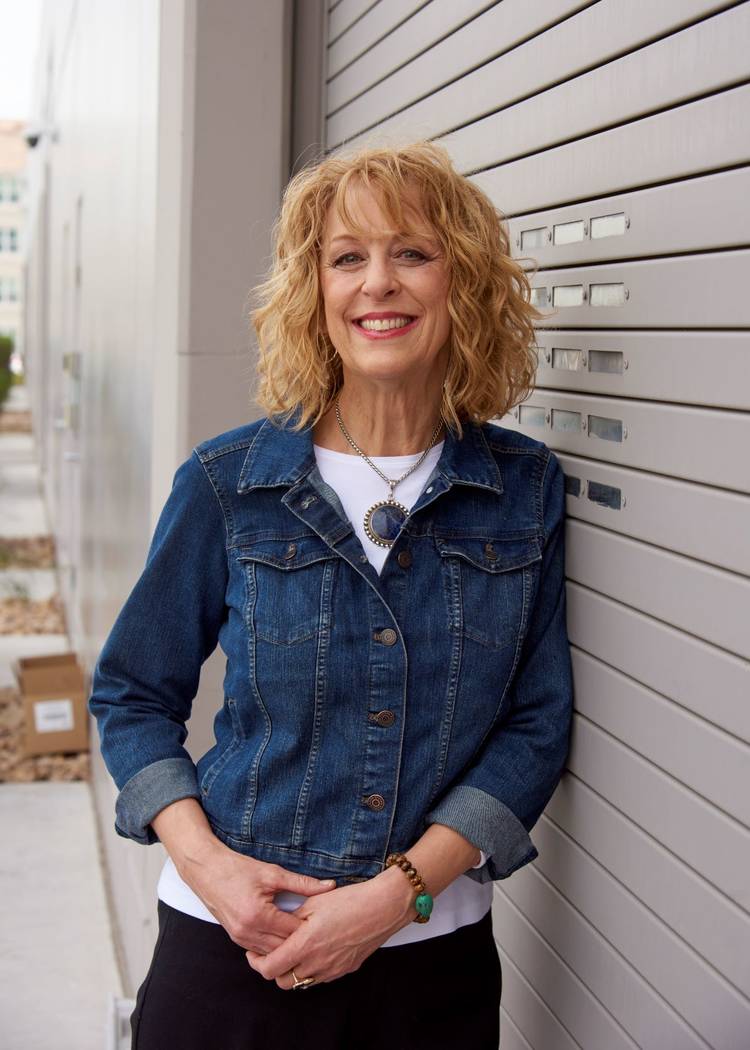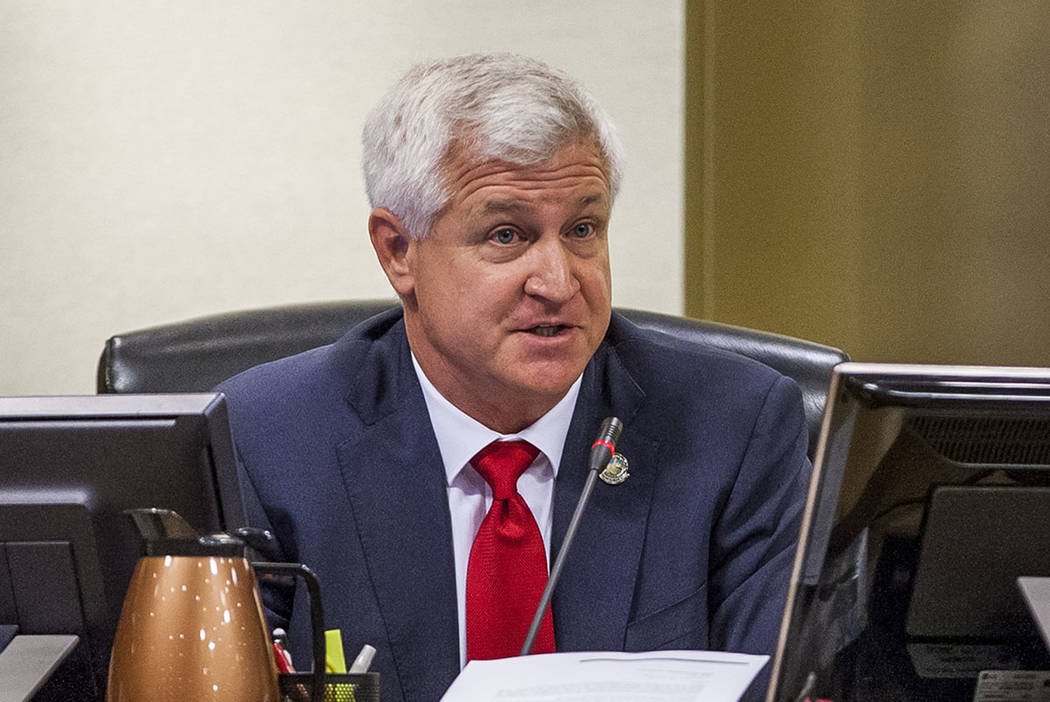Seven battle for vacant Ward 2 seat in Las Vegas special election
In the Las Vegas City Council race to represent Ward 2, seven candidates are pledging to offer a direct line to City Hall and testing their appeal to improve quality of life in neighborhoods.
Bruce Feher, 70, who is semi-retired and ran a real estate service business, jokingly refers to his plans as “stump talk,” seeking to address nuts-and-bolts issues such as using only natural products on city park lawns, trimming trees so drivers can see stop signs and striping streets.
“I’m interested in trying to help my friends and neighbors live as much as a hassle-free, happy and safe life as they can,” he said.
Patsy Brown, a contract analyst and lawyer, acknowledged that public life “is not my thing at all.” But she recalled the recent threat to a school attended by one of her three children and lamented how “everyday somewhere, someone has a gun on a campus.” The heightened sense of insecurity galvanized her to run as “a concerned mother.”
Now Brown, 44, seeks to re-energize constituents to be more active in their community and wants to increase neighborhood watch programs, improve pedestrian safety and meet the basic needs for residents such as curb-painted addresses and free smoke detectors.
“I think I’ve been a breath of fresh air for all the people that I’ve met so far,” she said. “I think I bring a different attitude to the game.”
Communication and livability
In a contest to fill the remaining two years in the term of former Councilman Steve Seroka, who resigned in March for reasons still unknown, candidates have also underscored the need for transparency from this seat and public officials in general.
Hilarie Grey, the managing director for corporate communications with Allegiant Air, said the city must improve how it connects with residents and restore the public trust breached by elected officials in recent years.
If elected, she would call for attention to infrastructure amid fast-growing development and diversifying the housing stock and the economy. To do the latter, she said the city should assume a regional approach to attract new industries and reinforce its mission to be leaders in renewable energy and technological innovation.
“I wouldn’t still be here in Las Vegas if I didn’t see the potential for us to live up to the reputation that we’ve really espoused,” she said.
Like Grey, attorney Derrick Penney pointed to livability as a cornerstone issue. He vowed to press matters under his control such as ensuring that companies submitting bids for city projects are paying living wages to workers. And he said he would use the bully pulpit to advocate for topics not broached by his opponents: gender equality and devoting police resources to local issues and not immigration enforcement.
Penney, 53, also said he wants to revisit light rail, which was recently scrapped by transportation officials, calling it “a good alternative” to a bus rapid transit system and “workable” in the city.
Richard Plaster, a successful regional homebuilder, said he supports a robust mass-transit system and wants to explore so-called value pricing — ways to discourage traffic by charging drivers more in congested areas during peak times with things such as higher parking levies or toll roads.
“None of it’s free, so the question is what’s the best way to pay for it?” he asked.
Plaster, 72, has hitched his candidacy to responsible urban planning and fostering arts and culture, where he boasts longtime involvement on related boards.
Flex zoning to allow for higher density in older areas of the city would keep housing affordable, he said, suggesting that sometimes there is too much available land for commercial uses and not enough multi-family properties.
“Mature, independent, demonstrated leadership – that’s sort of the elevated pitch,” he said. “I’ve been around. I’ve actually done things that I can show.”
Political experience
While Plaster and others wear political inexperience as a badge of honor, two former assemblywomen are perhaps the most high-profile candidates in the race. Both say they have a collaborative strategy to address public safety.
Valerie Weber spoke about a 100-day plan that will include convening a coalition of police, small businesses, security firms and homeowners associations that will regularly discuss issues specific to neighborhoods. Information will be used, she said, to drive back criminal activity from dog poisoning to reckless driving.
Weber, 64, said she also wants to focus on streamlining city service delivery to constituents, as well as seeking proactive and practical methods for businesses to get started and neighbors to report potholes and traffic issues. Developing a countywide cellphone app for emergencies, she added, is part of the thread.
“I think people would be more engaged with local government if they knew how to navigate it,” she said.
Victoria Seaman has introduced a five-part plan that she said includes increasing police spending, implementing technology in “hot spot” areas for crime, supporting neighborhood watch programs, holding town halls and strengthening code enforcement, which could mean tougher penalties.
Seaman criticized new rules that restrict carpool lanes to vehicles with two or more passengers around the clock on Interstate 15 — recently announced by the Nevada Department of Transportation — saying that a conversation must be had about a compromise. (Up until now, cars with just one person could use the lanes during off hours.)
“People don’t like the lanes,” she said. “They just want the traffic to move.”
Meanwhile, all candidates have generally expressed a desire for compromise to resolve the city’s most prominent controversy, development of the Badlands golf course. That proposal may stay locked in the courts for some time, but it was also the defining issue of the last election, when Seroka defeated pro-development Councilman Bob Beers.
Head start yields big money advantage
After Seroka resigned, the city called a special election to fill the sudden void in Ward 2, setting off an abbreviated campaign cycle for all but one of seven candidates in the race.
Since the city decided to consolidate the Ward 2 special election with the already scheduled June 11 general election for two other wards, most candidates had a week to decide whether to run. But Seaman had a head start.
She began pitching herself to voters back in December, running concurrently with a union-led recall effort targeting Seroka for his stance against the Badlands project. Seaman had an early fundraising advantage as a result, raising more than $79,000 during the first quarter of the year, financial disclosures show. Her closest competitor, Weber, reported raising just more than $15,000. All others raised less than $10,000.
The stark fundraising divide in the race to represent Summerlin and other portions of western Las Vegas is exacerbated by Seaman’s additional efforts late last year. She reported raising $26,600 in 2018, bumping her total for the race to over $105,000 as of March 31.
Between the edge in funds and the extra time to meet with voters, Seaman said this week she thinks she has a “huge advantage.” Opponents are largely unphased, however, even as some have acknowledged there is ground to make up.
“I don’t think money is going to buy this race,” said Plaster, who reported raising no money in the first quarter.
Grey said that while “it adds to the urgency” of her campaign, the difficult mission of engaging constituents on city issues “far outweighs anything presented by the profile of the recall and the fact that one candidate was out there ahead of the others.”
Some frame the contest squarely in terms of numbers unrelated to money.
Penney, who reported no earnings, said “there’s no doubt that it’s a challenge.” But he also pointed to how Seroka triumphed two years ago over incumbent Bob Beers with less than 4,000 votes.
“If I can convince a few thousand people that Derrick Penney is the right choice for Ward 2,” he said, “I don’t think it’s insurmountable.”
Weber, who was defeated last year in the state Senate District 8 contest by Marilyn Dondero Loop, said she garnered roughly 13,000 votes in Ward 2, which encompasses more than 60 percent of that Senate district.
“We only need a fraction of those folks to cross first over the finish line,” she said.
Two candidates who filed paperwork, retired firefighter Mike Tomko and UNLV law professor David Orentlicher, have since dropped out of the race. Early voting begins May 25.
Contact Shea Johnson at sjohnson@reviewjournal.com or 702-383-0272. Follow @Shea_LVRJ on Twitter.
Candidates react to Badlands golf course issue
Patsy Brown — "It's called compromise, I'm a firm believer in it…But people need to keep their word."
Bruce Feher — "I have mixed feelings on it. I can understand both points of view."
Hilarie Grey — "I'm coming to things with an open mind…I do have a lot of concerns" about impacts of high density development.
Derrick Penney — "You have got to try to keep the character of the community intact."
Richard Plaster — Developer Yohan Lowie "would have to make some very heavy compromises" (Plaster said he has "empathy" for Lowie).
Victoria Seaman — "A big concern of mine…There has to be a contentious debate in city council meetings about this."
Valerie Weber — "To me, overall, this is not the focal point of this race…looking at the ward as a whole."



